5 Ways to Encourage AAC Learners
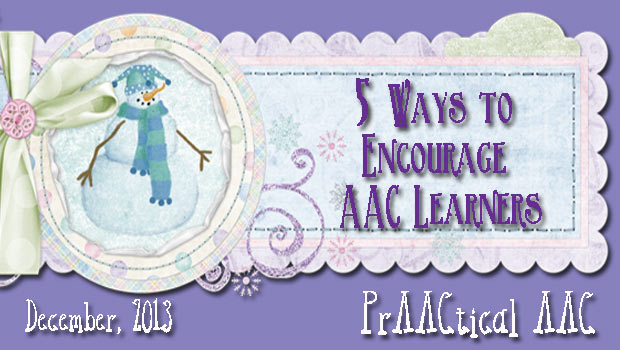
As clinical educators, we have lots of conversations with student SLPs about reinforcement of specific skills. We’ll save that for another post, but today we want to put reinforcement into a large context. We all learn best in an environment in which we are accepted and encouraged. It’s often hard to ‘see’ how to do that in a therapy session where the AAC learner has so many skill deficits, particularly if you are starting out in your AAC career. Here are some ideas.
- Accept their responses without judgment.The Dot (click on image) is a great reminder to us all of how our responses to a learner’s attempt can make ALL the difference in how they see themselves.
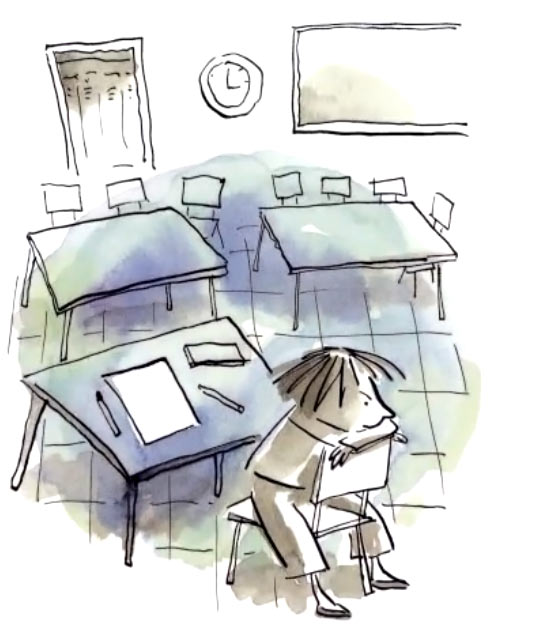
- Use the language of communication. Instead of ‘show me on your board’ or ‘point to what you want,’ use communication-oriented verbs, like ‘tell’ or ‘say.’ “Tell me what you’re thinking.” “I like what you said.”
- Don’t ask questions if the answers are already apparent. Asking questions like “Is that a dog?” (when shown a dog) or “Is your name Mia?” (when everyone already knows her) are insulting, demoralizing, and often result in the learner tuning out or answering incorrectly just to amuse themselves. Either way, it’s not good, so we try to avoid those kinds of questions. Find a way to ask questions that target the same skill but in an authentic way.
- Acknowledge struggle. Things can be really hard when someone is first learning a new tool or skill, and that can sap our motivation to put forth good effort. Sometimes, it makes sense to acknowledge how difficult something is and talk about it candidly. “Jaysin, I know this is tough stuff.” “This next one is going to be hard.” Follow it up with a good dose of encouragement.
- Relate back to past successes. Talk to AAC learners about things they’ve done well and hurdles they’ve overcome. Even better, talk to OTHER people about the AAC learner’s successes. It feels great when people brag about us to someone else, doesn’t it? When we know that our achievements are important enough for other people to notice and discuss, it can inspire us to greater efforts.
Do you have a special way of encouraging the AAC learners you work with? We’d love to hear about it.
Filed under: PrAACtical Thinking
Tagged With: encouragement, intervention
This post was written by Carole Zangari

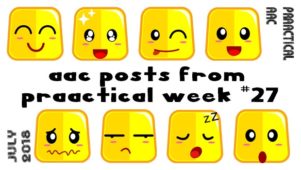
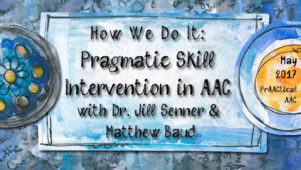
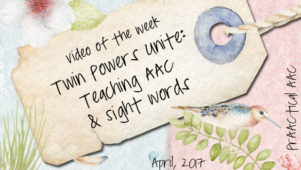
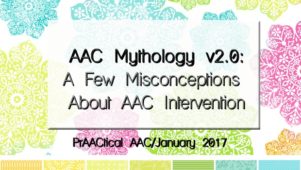
4 Comments
I often get more conversation from my AAC users when I follow their lead. I think we can get too overly focused on our own “goals” with our students that we forget about trying to meet them halfway and talk about what they want to talk about. Communication is a two-way street. 🙂
Such a GREAT point, Jeanne! With all the pressure to help clients achieve specific goals and targets, it is easy to forget that it’s all about the interaction. Connection is the place where real language learning happens. Thanks so much for this awesome comment.
Hi Carole.
I love your 1 to 3…even though I am not sure what AAC means! 🙂 I suspect i know but ASS U ME !
Anyways I will suggest another. Break down the tasks into parts that provide a challenge BUT you know can be achieved by them…not because of your explanation but through their efforts which are based on attention/perception/awareness/control
cheers!
Andrew
Andrew, thanks for stopping by and taking the time to provide that great suggestion. AAC is augmentative and alternative communication and is used to suppport communication by people with little or no functional speech. As you can imagine, we have all the usual challenges in teaching language plus a few unique ones.